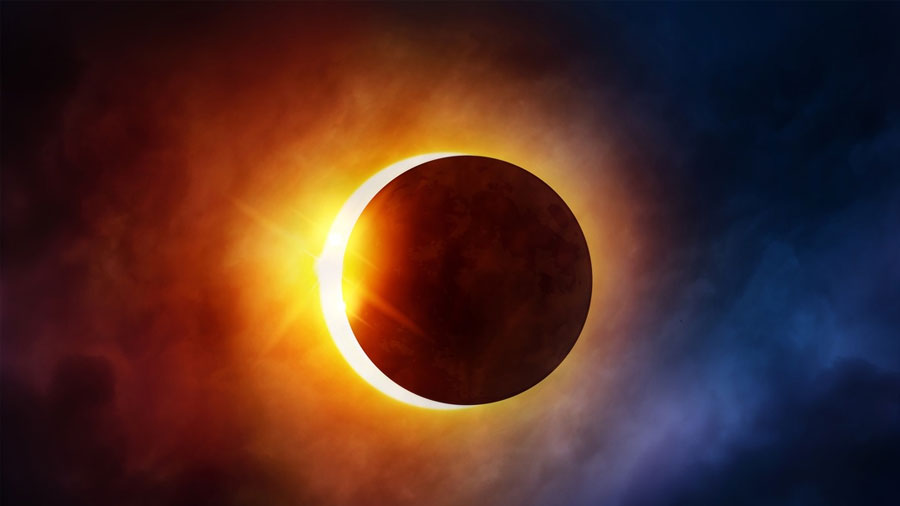
Eclipses and Dissertations
On August 21st, 2017 a total solar eclipse cut a path across the United States, stretching from Oregon to South Carolina, and sharing its spectacular celestial show with 14 states! It’d been a hundred years since a total solar eclipse has covered the continental US, but eclipses happen to doctoral students with far greater frequency…
A solar eclipse occurs when the moon passes directly between the Earth and the sun. Now, this kind of thing happens every month. It’s called a new moon.
But, since the orbits of the Earth and the moon aren’t in the same plane, most months the new moon is a little above the sun, or a little below. However, during a solar eclipse, the moon doesn’t pass the sun too high or too low. When it’s just right, the moon’s shadow actually hits the Earth.
If you were on the moon looking at the Earth, you’d see a tiny little dot of darkness. The dot would be so small that it would span less than 1% of the width of the globe.
This insignificant dot would move slowly across the globe as the moon orbits around the Earth. Cutting a very deliberate, plodding path from west to east as the moon passes between the Earth and sun.
Earth appears only about four times as big when viewed from the moon as the moon does when viewed from the Earth. So, the three plus hours it takes for that little dot to move across the Earth’s small blue face would pass arduously slowly.
But on Earth, the view is a bit different. The Sun’s light is slowly dimmed, and then all hell breaks lose. The temperature drops several degrees in a matter of minutes. Birds, thrust into a game of cosmic musical chairs, frantically scramble to find a spot to roost. Nocturnal insects begin a matinee symphony. And, then you see it: out of the West, a veil of darkness charging straight at you, hurtling your way at supersonic speeds, threatening to vanquish light from the Earth forever!
Then, as the last drops of sunlight are squeezed from the sky, a magnificent halo appears encircling the area where our sun once shone. Awe is the right word, whether terrifying or mesmerizing.
Like Nietzsche’s abyss, you find yourself staring into irrefutable proof that there’s an entire universe out there that cares not one little bit about you or your plans. That you are so small that you’re hardly even a speck inside that dark little dot tracking slowly across the face of the small blue orb.
I know countless dissertation students who’ve faced this situation. The loss of a loved one or of a job can totally eclipse your dissertation journey. I’ve helped students who’ve lost parents, spouses, even children. Other students have experienced turnover within their dissertation committees. Still others have had professional or financial setbacks seriously beset their chances at graduation.
The good news is this: Eclipses are but a moment in time, and then they are gone. Although you cannot avoid these eclipses in your life, you can aspire to a certain peace about these things that temporarily block all the light.
If your goals were wise and your path was true, they will remain so after the light returns. Momentary setbacks must be viewed as just that, not the world-ending cataclysms after ancient Man must have thought solar eclipses represented.
Have you experienced an eclipse event during your dissertation journey?
Are you continuing to deal with the fallout?
Does it seem like the darkness is still upon you?
Could you use emotional support to regain your confidence?
